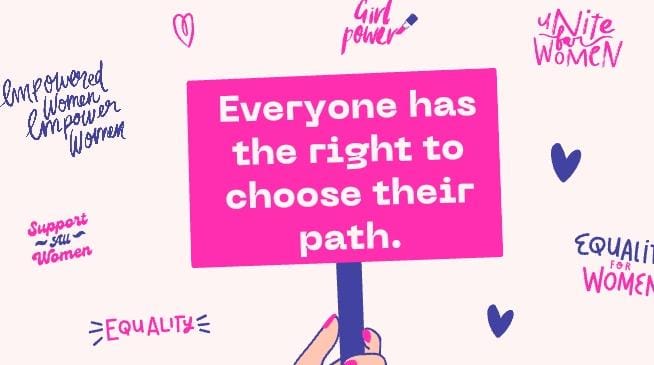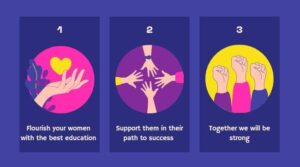
Educating The Future
In the 21st century, while the world is making incredible advancements like planning missions to Mars and creating cars that run on sterile water instead of fuel, there are still areas in Pakistan where outdated beliefs are holding society back. In underdeveloped cities and rural regions, there is still an unsettling debate over whether girls should be allowed to study beyond middle school.
Even if parents or guardians allow their daughters to continue their education, they often restrict their choice of field. Girls are typically limited to studying subjects considered “safe” or “appropriate,” like B.Ed programs or degrees with minimal male interaction. For example, pursuing a degree in law is often seen as inappropriate, as it is believed that girls from respectable families should not be involved with courts or jails.
This outdated mindset is further demonstrated by a disturbing comment from a government official responsible for public safety. He suggested that educating women leads to moral decay, saying, “The more you educate a woman, the shorter her trousers get.” This type of thinking undermines women’s potential and keeps them stuck in a cycle of discrimination and repression.
The societal norms and religious beliefs in Pakistan often dictate women’s roles and rights, creating barriers to education rooted in a patriarchal system that fears empowered women. According to UNESCO, as of 2020, Pakistan has one of the world’s highest rates of out-of-school girls, with over 12 million girls not attending school at any level. This statistic highlights the urgent need for educational reforms and societal change.
Economic factors also play a significant role in preventing women’s education. In poor families, educating a daughter is often seen as a financial burden rather than an investment. Girls are expected to help with household chores or are married off early to reduce the family’s economic burden. This situation is made worse by inadequate school infrastructure, a lack of female teachers, and the threat of gender-based violence, which discourages parents from sending their daughters to school.
Denying women education has many negative consequences. Educated women contribute to economic growth, lead healthier families, and participate in social and political activities, helping to create a more inclusive and equal society. A study by the World Bank shows that every additional year of schooling for girls reduces child mortality by 5 to 10 percent, emphasizing how important education is for societal change.

Moreover, education is a basic human right. Denying it to half the population is a violation of this right and hinders the nation’s development. In a world where knowledge is power, restricting access to education based on gender is a grave injustice that keeps people in poverty and inequality.
Changing these deeply ingrained beliefs requires a comprehensive approach. Public awareness campaigns should highlight the benefits of women’s education, not just for individuals but for the entire community and nation. Education systems need to be reformed to be more inclusive and accessible, especially in rural and underdeveloped areas. Additionally, male allies must be encouraged to support women’s education, understanding that it is a societal issue rather than just a women’s issue.
Government and non-governmental organizations must work together to provide scholarships, build schools, and ensure safe learning environments for girls. Media and technology can be powerful tools in changing perceptions and inspiring a new generation of girls to pursue their dreams without fear of judgment or persecution.
In conclusion, the struggle for women’s education in Pakistan reflects a broader global fight for gender equality. As we stand on the brink of a new era, where innovation and progress define success, it is vital to break down the barriers that hold back half the population from reaching their potential. The journey toward equality is long and challenging, but it is a journey worth taking for a brighter, more equal future for everyone. Only then can we truly claim to be an advanced society ready to tackle the challenges of tomorrow.